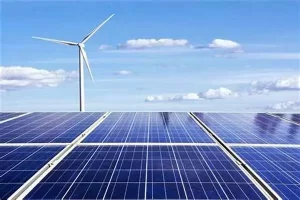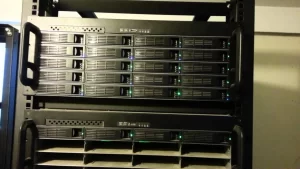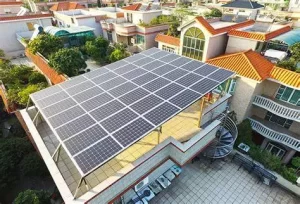Solar power with battery storage for home: Unlocking a New Era of Energy
The integration of solar power with battery storage for home is ushering in a revolutionary shift in the way we consume energy. This combination holds immense significance in the global pursuit of sustainable and efficient energy solutions.

Overview of Solar Power with Battery Storage for home Integration
The marriage of solar power and battery storage for home is not a recent phenomenon but has evolved over time. Solar power has witnessed remarkable historical development, from its humble beginnings to becoming a mainstream energy source. Technological advancements in solar panels have led to increased efficiency and reduced costs, making solar energy more accessible and competitive.
The global adoption of solar power has been on the rise, driven by various factors such as government incentives, environmental consciousness, and the desire for energy independence. Market trends indicate a continued upward trajectory, with solar installations projected to increase significantly in the coming years.
Role of Battery Storage in Solar Energy Systems
Battery storage technology plays a crucial role in solar energy systems. It enables the storage of excess solar energy generated during peak production hours for use during times of low sunlight or high demand. Different types of batteries, such as lithium-ion and lead-acid, are commonly used in solar applications, each with its own characteristics and suitability for specific scenarios.
The integration of batteries offers several advantages, including improved reliability of the power supply, reduced reliance on the grid, and the ability to provide backup power during outages.
Benefits of Solar Power with Battery Storage for Home
One of the key benefits of this integrated system is enhanced energy independence. Households and businesses can generate and store their own electricity, reducing their dependence on traditional power grids. It also stabilizes the energy supply by eliminating fluctuations in solar generation and providing a consistent power output.
Cost reductions are another significant advantage. Over time, the combination of solar power and battery storage can lead to lower electricity bills and increased savings. Additionally, it brings economic benefits at the community and national levels by reducing the need for expensive infrastructure expansions and imports of fossil fuels.
Applications and Case Studies
In the residential sector, solar power with battery storage for home has enabled homeowners to achieve self-sufficiency and even sell excess energy back to the grid. Commercial and industrial facilities are also increasingly adopting this technology to reduce operational costs and meet sustainability targets.
Utility-scale solar power plants, when coupled with battery storage, can provide more stable and dispatchable power, enhancing the integration of renewable energy into the overall energy mix.
Technological Innovations and Future Trends
The field of solar panels is witnessing continuous technological innovations, such as the development of perovskite solar cells and improvements in thin-film technologies. Battery storage systems are also evolving, with advancements in energy density, charging times, and lifespan.
These innovations are expected to have a profound impact on energy consumption patterns, making solar power with battery storage even more efficient and economically viable.
Environmental Impact and Sustainability
The use of solar power with battery storage for home leads to a significant reduction in the carbon footprint. By displacing fossil fuel-based electricity generation, it contributes to the achievement of renewable energy goals and helps mitigate climate change.
When compared with fossil fuel alternatives, solar power with battery storage offers a cleaner and more sustainable option with minimal environmental impact.
Challenges and Considerations
Despite the numerous benefits, there are challenges that need to be addressed. Cost remains a significant hurdle, especially for large-scale deployments. The financial viability of projects depends on factors such as initial investment, government subsidies, and the long-term cost of battery replacement.
Technical limitations, such as battery lifespan and grid integration issues, pose challenges to the widespread adoption of this technology. Policy and regulatory frameworks also need to evolve to support and incentivize the growth of solar power with battery storage.
Conclusion
In summary, the revolution of solar power with battery storage for home is transforming energy consumption in profound ways. The key points discussed throughout the article highlight the potential and benefits of this integrated system.
Looking ahead, the future of solar power with battery storage appears bright. Continued technological advancements, supportive policies, and increased public awareness will drive the transition towards a more sustainable and energy-efficient world. It is our collective responsibility to advocate for and embrace this sustainable energy revolution.
Contact us
- Email:[email protected]
- Tel: +86 13651638099
- Address: 333 Fengcun Road, Fengxian District, Shanghai
Get A Quote Now!

Read more

Unveiling Photovoltaic+Energy Storage: Four Major Application Scenarios Leading the Future of Energy
In this way, the energy landscape is evolving, and one of the most thrilling developments in renewables is the integration of photovoltaics energy storage.

From Theory to Practice: Four Methods for Estimating Photovoltaic Power Generation
Photovoltaic power generation has become an essential part of modern energy solutions, particularly in home solar systems and distributed power applications

Rack-Mounted Lithium Iron Batteries: Creating Efficient and Reliable Energy Storage Solutions
When it comes to modern energy solutions, rack-mounted lithium iron batteries are taking center stage in a variety of industries. Whether you’re powering data centers, stabilizing energy for households, or keeping critical systems online at 5G base stations, these batteries have become the unsung heroes of our electrified world.

Late Night Energy Saving Tips: How to Maximize Electricity Savings During Off-Peak Hours
With rising energy costs, homeowners are increasingly exploring innovative ways to save on their electricity bills. One effective approach is utilizing off-peak hours—times when electricity rates are significantly lower due to reduced demand.
